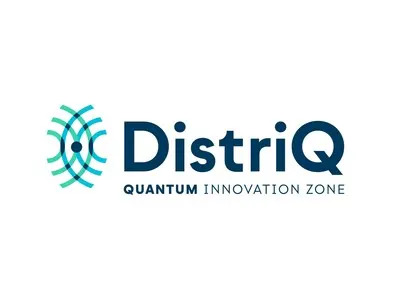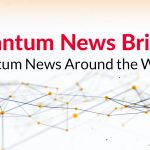Quantum News Briefs: November 27th, 2023: DistriQ, Quantum Innovation Zone Inaugurates Espace Quantique 1; SiliconIntervention Demonstates Thermal Noise Elimination in Analog Circuits; UbiQD Unveils UbiGro® Cover to Enhance Greenhouse Productivity;and MORE!

Quantum News Briefs: November 27th, 2023
DistriQ, Quantum Innovation Zone, inaugurates Espace Quantique 1
Recently, Sherbrooke’s Quantum Innovation Zone celebrated a significant advancement with the opening of Espace Quantique 1 (EQ1) and its Quantum Technology Development Laboratory (DevTeQ). Located at 1950 rue Roy, the 50,000 sq. ft. EQ1 facility is dedicated to quantum technology, providing private office spaces, shared workspaces, and a 20,000 sq. ft. state-of-the-art shared laboratory to over a hundred professionals from about fifteen companies and partners. This initiative, part of a total $40.8 million investment supported by the Quebec government with over $28.77 million and a $1 million contribution from Desjardins, aims to facilitate the transition from research to commercialization and job creation in the quantum field. Martin Enault, General Manager of DistriQ, highlights the center’s role in fostering collaboration and innovation among quantum companies. Additionally, the Zone’s impact is further solidified by PASQAL’s announcement of a $90.6 million investment over five years, creating over 50 jobs and positioning Quebec as a global competitor in quantum science and technology. Raphaël de Thoury, CEO of PASQAL Canada, emphasizes the significant role of the Quebec government’s support and EQ1’s potential in driving major future innovations in the industry.
SiliconIntervention demonstrates eliminating thermal noise in analog circuits based on quantum tunneling
![]()
SiliconIntervention, a company based in Kelowna, BC, specializing in advanced analog and mixed-signal technology, has recently demonstrated a method to eliminate thermal noise in analog circuits using quantum tunneling. This significant development, a collaboration with the University of British Columbia and supported by the Canadian government’s MITACS program, was achieved on test silicon fabricated by Global Foundries in a 22nm FDSOI CMOS process, with assistance from CMC Microsystems. Chief Scientist Martin Mallinson highlighted the potential for achieving exceptionally low current consumption in high-performance signal processing through this innovation. The company’s CEO, Allan Cox, introduced ‘The New Analog,’ a platform approach incorporating quantum tunneling and leveraging both the advantages and non-idealities of advanced CMOS nodes. This advancement paves the way for a new generation of low-power analog and mixed signal devices, ranging from amplifiers to data converters, representing a significant leap in circuit design and efficiency.
Quantum Dot Leader UbiQD Unveils UbiGro® Cover to Enhance Greenhouse Productivity
UbiQD, Inc. (pronounced ubiquity), a New Mexico-based leader in quantum dot technology, announced the launch of UbiGro Cover, an innovative greenhouse cover film, as a major advancement in sustainable agriculture. Building on the success of UbiGro Inner, UbiGro Cover incorporates fluorescent quantum dot technology into a greenhouse film, promising lower costs, wider formats, and improved performance. This technology, which optimizes the sunlight spectrum for enhanced photosynthesis and crop yields, represents a significant step forward in addressing global food production challenges on limited arable land. UbiQD’s latest product results from extensive research and development, including work that contributed to the 2023 Nobel Prize in Chemistry. The introduction of UbiGro Cover is timely, as it meets the increasing demand for sustainable and efficient agricultural practices amidst changing climates and rising populations. UbiQD is also making strides in solar energy, further underscoring the versatile applications of quantum dot technology in addressing critical environmental issues.
Limits for quantum computers: Perfect clocks are impossible, University of Vienna research finds

A recent study by Marcus Huber’s team at the Vienna University of Technology has unveiled fundamental limitations in quantum computing related to the precision and resolution of clocks. Quantum computers manipulate quantum states like rotations in higher dimensions, which require extremely precise timing. The study found perfect time measurement is unattainable due to the inherent trade-off between a clock’s time resolution (how small the measurable intervals are) and its precision (accuracy of each tick). Since no clock can have infinite energy or produce infinite entropy, achieving both perfect resolution and precision is impossible. This limitation sets a fundamental boundary for the speed and reliability of quantum computers. While current quantum computing accuracy is constrained by other factors, such as component precision or electromagnetic fields, advancements in quantum technology will eventually face the challenge of these time measurement constraints. This research, contributing to our understanding of quantum mechanics, suggests that future quantum computing developments might reveal new insights into the quantum world.




















